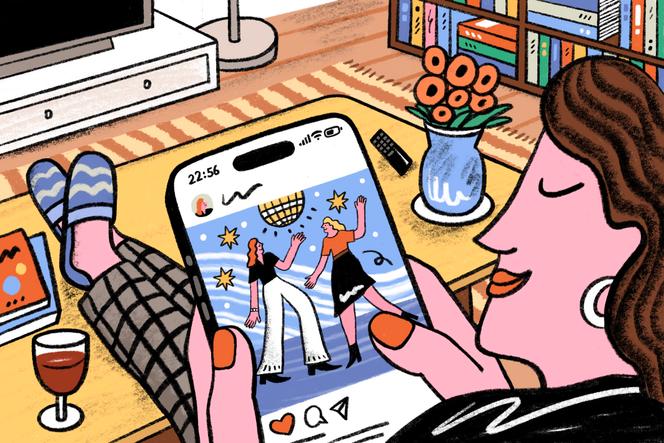


"Every weekend, I went clubbing. Hip-hop, dancehall, disco... I loved it all," recounted Lisa, 24, without nostalgia. A master's student in art direction at the Studi online school, she remembers letting off steam on the dance floor up to four times a week. That was three years ago. "The Covid-19 pandemic taught me to love staying at home, so much so that my father, who I lived with in Bordeaux in 2022, felt I wasn't making the most of life," she said. Lisa is now living with her mother in Angers (western France), having returned for economic and professional reasons.
Lisa criticizes dance bars for what she used to love about them: the noise and promiscuity. "Drunk people annoy me and I feel less safe than I used to," she explained. She devotes her evenings to dinners with friends or to the TV series she watches over and over again: "How to Get Away with Murder, Peaky Blinders and Desperate Housewives, which I watch three times a year." With her alpaca blanket as her only partner. "There are friends I've lost touch with. Nowadays, I like to stay at home without noise, without having to make conversation. I often can't be bothered to go out."
Have American pop and dance floors gone out of fashion? Between the 1970s and today, more than half of all nightclubs in France have gone out of business. Young people are certainly still dancing, but at home or on TikTok. The report "U Going Out" (published in 2022 on the British platform Keep Hush) drives the point home: Millennials and Generation Z enjoy clubbing culture less.
Journalist and essayist Vincent Cocquebert sees them as an "indoor generation," confined to their homes. "In fact, when they say they can't be bothered going out, it's more that they can't be bothered with the risk-taking involved in partying," said the author of La civilisation du cocon ("Cocoon Civilization"). What are the risks in question? Going outside and being surrounded by strangers. "There's a big shift toward home-based activities, something which also concerns the party scene. We're less likely to party in outside venues where we'll be rubbing shoulders with the unknown," he said.
This inward-looking attitude affects all social groups, in rural and urban areas alike. "Higher class circles have always partied amongst themselves. What's changed is that this phenomenon has come to affect the middle and lower classes. They used to take advantage of these events to mix," said Jérémie Peltier, co-director of the Fondation Jean Jaurès and author of La fête est finie? ("Is the Party Over?"), referencing historian Sabine Melchior-Bonnet's work on solitude.
You have 60% of this article left to read. The rest is for subscribers only.
